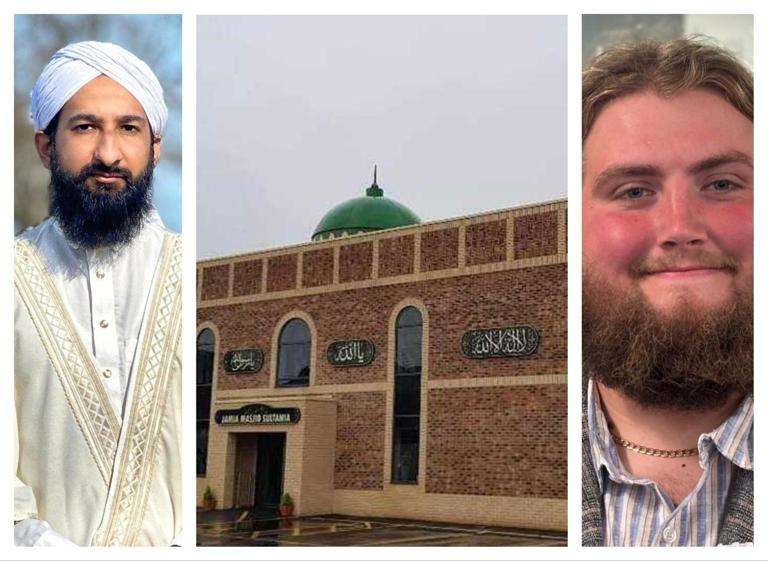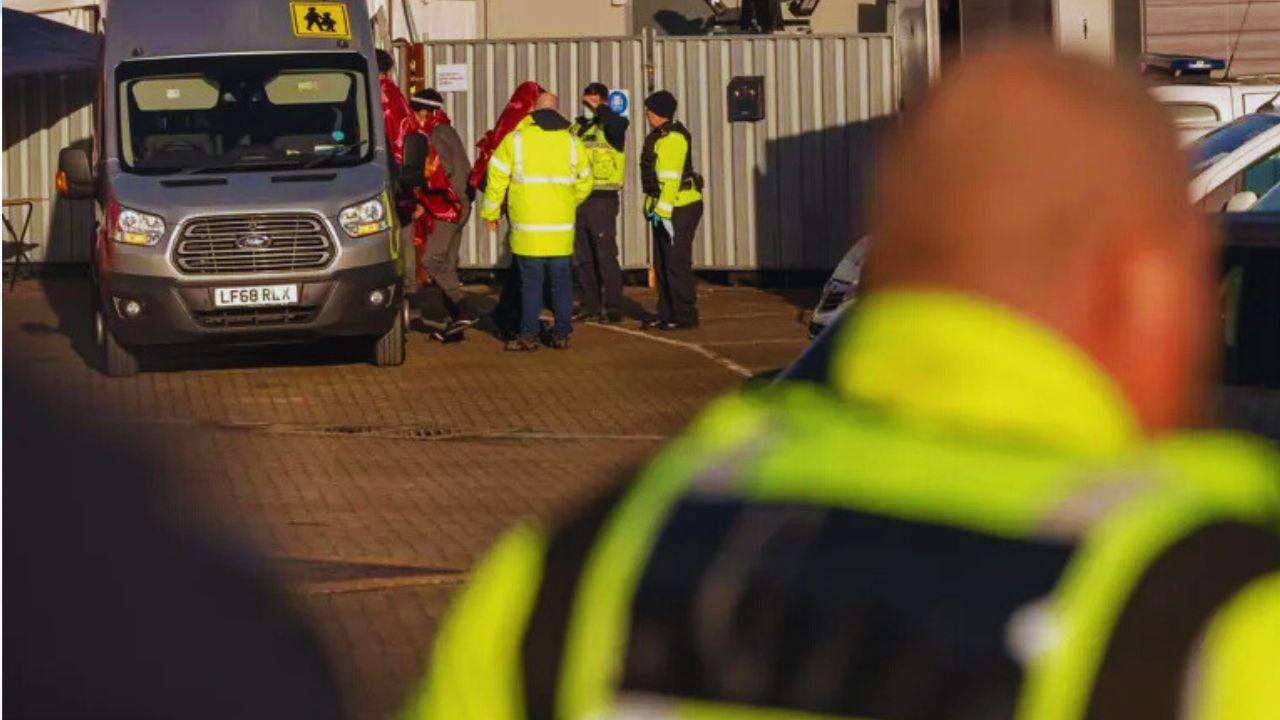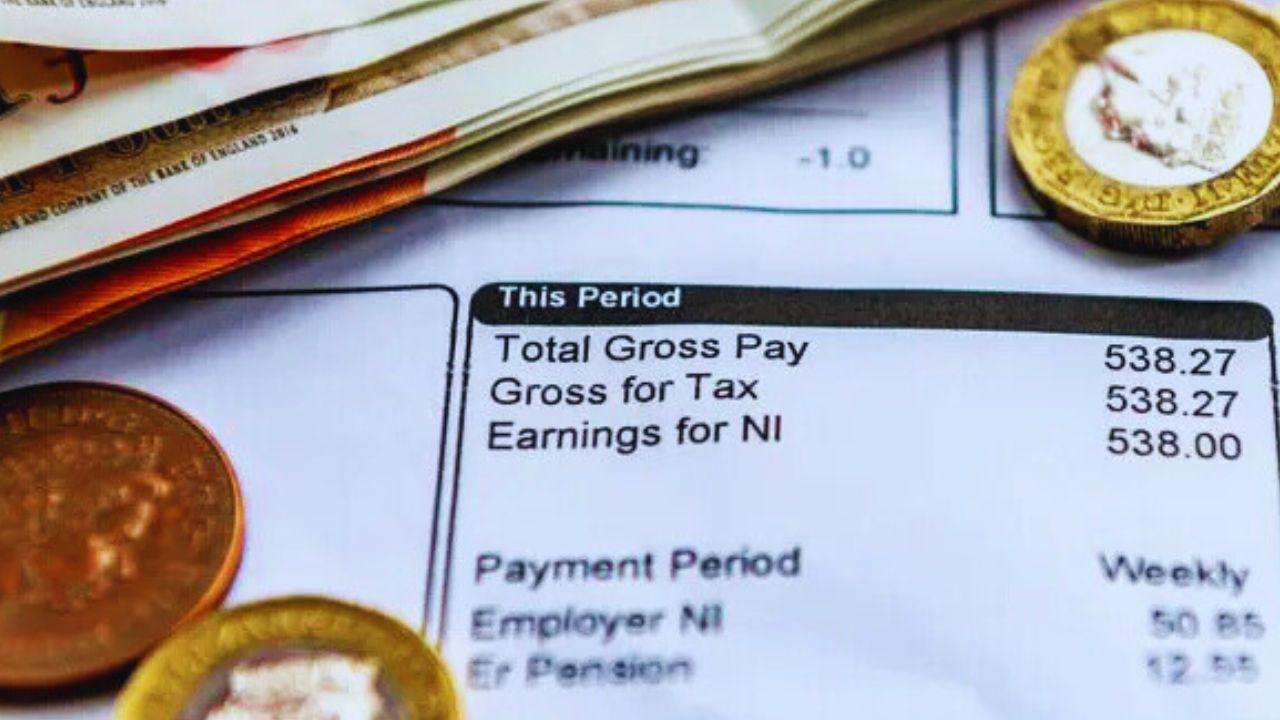Migrants who overstay their visas will face removal from the UK, a minister has pledged, following revelations that they account for nearly 40% of all asylum applicants.
According to the Home Office, around 40,000 individuals who entered the UK as students, workers, or visitors last year have since applied for asylum. Of these, approximately 10,000—around a quarter—have been housed in taxpayer-funded hotels or other government-supported accommodations, despite initially holding visas that indicated they could support themselves financially without public assistance.
These findings have sparked concerns that the visa system is being misused as an alternative pathway to permanent UK residency. In response, Home Secretary Yvette Cooper has instructed officials to launch an investigation.
Speaking on Times Radio on Monday, Border Security Minister Angela Eagle commented on the situation, saying, "We inherited a system where processing had dropped by 70%, leaving 100,000 people in dispersal accommodation or hotels without their cases being reviewed under the previous government." She added, "When these individuals entered the UK on a visa, they assured us they had the financial means to sustain themselves without relying on public funds."
When asked whether visa holders staying in taxpayer-funded hotels would be removed, Ms. Eagle responded, "They certainly will, and if they are overstaying, they will be deported."
This development coincides with Prime Minister Sir Keir Starmer hosting a summit in London on Monday, where representatives from 40 countries—including the United States, China, Vietnam, Iraq, Italy, and Albania—gathered to discuss illegal immigration.
At the meeting, the Prime Minister urged global cooperation to combat people-smuggling networks with the same intensity used against terrorist organizations.
Government ministers and law enforcement officials will discuss strategies for tackling illegal migration, focusing on supply routes, criminal financial networks, and online advertisements promoting human smuggling. Representatives from social media platforms such as Meta, X, and TikTok will also participate in discussions on curbing the online facilitation of irregular migration.
As part of these efforts, the UK Government has committed £33 million to disrupting people-smuggling operations and increasing prosecutions. This funding includes financial support for foreign prosecutors tasked with tracking down human traffickers worldwide.
Opening the summit, Sir Keir emphasized the impact of illegal migration, stating, "It is a significant driver of global instability. It undermines our ability to regulate who enters the country, and that understandably frustrates people. It frustrates me, to be honest, because it's unfair to hardworking citizens who bear the financial burden—whether through the cost of housing migrants in hotels or the strain on public services.
"At the same time, it's also unfair to the migrants themselves, as many are vulnerable individuals being exploited by criminal networks.
"We must all take decisive action within our own countries to address this issue."
Five nationalities make up half of all illegal migrants to the UK
In 2024, migrants from five nationalities made up more than half of all individuals detected entering the UK illegally, according to Home Office data.
Out of 43,630 migrants identified as arriving through irregular routes, Afghan nationals formed the largest group, accounting for 15% (6,339) of the total. They were followed by Iranians, who comprised 12% (5,370) of illegal arrivals, while Syrians were close behind at 11% (4,945). Eritrean and Vietnamese nationals each represented 9%, with 3,920 and 3,798 arrivals, respectively. Additionally, the nationality of 1,457 individuals (3%) was not recorded.
Afghans and Iranians remained the two most common nationalities for illegal arrivals, just as they were in 2023, when they accounted for 17% and 14% of arrivals, respectively.
The share of Vietnamese migrants saw a significant increase, rising from 4% in 2023 to 9% in 2024, while Syrian arrivals also grew from 7% to 11%. In contrast, the proportion of Turkish migrants decreased from 9% in 2023 to 5% in 2024.
Overall, the number of migrants detected entering the UK illegally rose by 19% in 2024, reaching 43,630 compared to 36,699 the previous year.
The majority of illegal entrants arrived by crossing the English Channel in small boats, accounting for 84% of the total. Others entered by air (8%) or through UK ports (1%), while the remaining 7% were detected within 72 hours of arrival.
The most common nationality of arrivals varied by entry method. Afghans represented the largest group arriving via small boats across the Channel (17% of cases where nationality was recorded). Iranians were the most common among air arrivals (24%), Albanians led among those entering through UK ports (20%), and Sudanese made up the largest share of those detected within 72 hours of arrival (23%).
Afghan nationals have consistently been the most common group arriving via small boats in both 2024 (17%) and 2023 (19%). In contrast, Albanians dominated this category in 2022 (28%), while Iranians were the largest group in both 2021 (30%) and 2020 (28%).
Below is a list of the 20 most frequently detected nationalities among migrants who entered the UK illegally in 2024.
Afghanistan 6,339 (14.5 per cent of total)
– Iran 5,370 (12.3 per cent)
– Syria 4,945 (11.3 per cent)
– Eritrea 3,920 (9.0 per cent)
– Vietnam 3,798 (8.7 per cent)
– Sudan 3,526 (8.1 per cent)
– Iraq 2,462 (5.6 per cent)
– Turkey 2,180 (5.0 per cent)
– Yemen 1,308 (3.0 per cent)
– Kuwait 1,035 (2.4 per cent)
– Albania 825 (1.9 per cent)
– Somalia 780 (1.8 per cent)
– Sri Lanka 704 (1.6 per cent)
– Georgia 657 (1.5 per cent)
– Ethiopia 628 (1.4 per cent)
– India 518 (1.2 per cent)
– Stateless 498 (1.1 per cent)
– Egypt 399 (0.9 per cent)
– Libya 387 (0.9 per cent)
– South Sudan 323 (0.7 per cent)

_8.jpg)

_7.jpg)




.svg)


